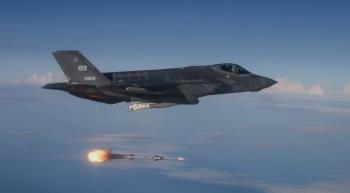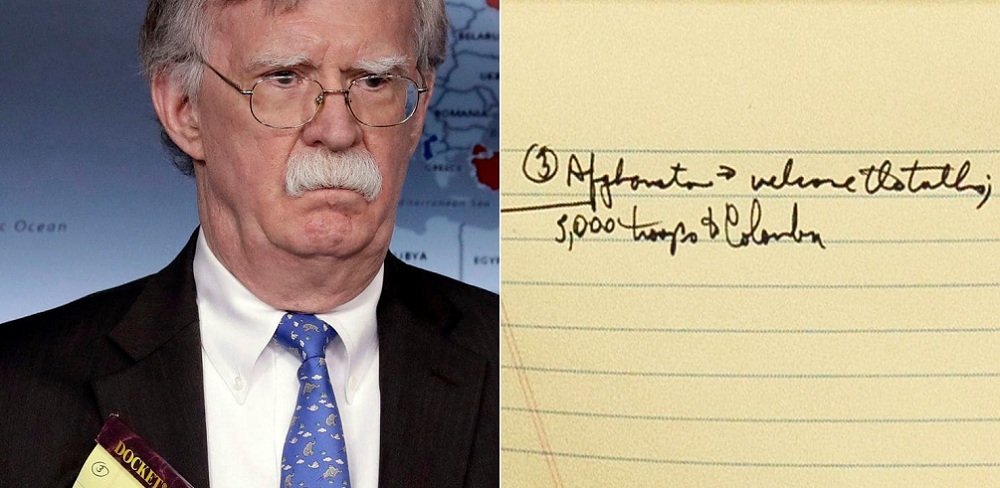Alwaght- The roots of the current political crisis in Venezuela are the subject of a dispute bringing the government and the opposition at each other’s throats. While the opposition finds President Nicolas Maduro government’s shortcomings the main cause of the economic collapse and political crisis in the country, the president argues that sanctions and foreign meddling especially by the US to topple the ruling socialist government are behind the crisis, which is prompted by falling oil prices and strained income. Recently, White House and its regional allies have shown some intention to intervene militarily in Venezuela.
Immediately after Juan Guaido, the head of the National Assembly, announced himself the interim president, White House rushed to state that it recognized him as Venezuela's legal president and called on the elected president Maduro to step down.
Following suit, some regional countries recognized Guaido. The EU set a deadline to Maduro to hold an election within eight days, or it will recognize the rebellious National Assembly speaker as president.
The range of the foreign intervention in Venezuela was so wide that the US National Security Advisor Johan Bolton’s threats carried military action signals, although some find a military action against Caracas largely impossible and a show.
How did the US issue its warnings of military action and why they remain a simple bluff?
Military intervention, from threat to action
Last Monday, the US military action threats heated up. The issue came to a head when at a press conference on the US sanctions on Venezuela’s oil and gas sectors the journalists’ cameras caught Bolton’s personal note reading “5,000 troops to Colombia.” Colombia shares borders with Venezuela and is in warm relations with Washington. When was asked about the note, Colombian Foreign Minister said he did not know “the importance or reason of for Bolton’s note.”
Before the incident, however, Trump had threatened that all options were on the table in the confrontation of the Venezuelan government.
But a set of reasons reject the possibility of use of force in Venezuela by the US
Lack of consensus in the West
Despite the fact that many Western countries backed Venezuela opposition leader, only the US alluded to use of the military option to turn the tide to the Guaido’s favor. While White House hinted at military action, the Spanish Foreign Minister Josep Borrell said both his country and the EU strongly opposed military intervention in the crisis-hit nation.
Earlier, the Peruvian Foreign Minister Nestor Popolizio had said Peru, Canada, and the Lima Group, a body devised to seek an exit from Venezuelan crisis, opposed use of force against Caracas. This came while Canada and Lima Group earlier supported the coup leader.
So, the military intervention option has no advocates even among Washington's Western allies. This makes it heavily costly for Trump to take military action.
Venezuela crisis and structural confrontation on global stage
The high cost of any military action against Maduro does not only stem from the Western sides. US aggression can trigger a confrontation of the global powers.
As the US continued its anti-Venezuelan threats, Russian Foreign Ministry issued a statement, accusing the US of disrespecting the international laws and warning that any military intervention could lead to catastrophic consequences. Reacting to Bolton's note, the Russian Deputy Foreign Minister Sergei Ryabkov, giving Russian International Relations Magazine an interview, said Russia will stand by Venezuela to support the country’s national sovereignty and the principle of the non-interference. Moscow has its own objective to have Maduro’s back. While over the past years, the NATO was expanding eastward, where Russia held traditional influence, Moscow finds saving the socialist government of Maduro a response to the Western expansion and an instrument to set up a balance of threat with the US.
This policy drove Kremlin to intensify military links to Venezuela. As the Venezuelan crisis unfolded, Russia sent two nuclear-capable long-range bombers to Caracas in a pose of support to the legitimate president.
Russia’s military intervention in Syria to turn the momentum to President Bashar al-Assad’s favor in a fierce war against terrorism, show that Moscow leaders spare no effort to fully help their allies even through direct military intervention. Indeed, such a support is mainly motivated by Kremlin’s red line which bans allowing its traditional spheres of influence to be lost to the rival West.
So, regarding Kremlin's warning against any military action against Venezuelan government, White House is unlikely to choose a military face-off with Russia.
In addition to Russia, China, Turkey, and Iran have declared their support to Venezuela. The United Nations’ chief also had his say on Venezuela developments. Talking to the BBC, Antonio Guterres said he was deeply worried about possible foreign-caused violence in Venezuela.
So with the Russian opposition and the UN worries, it is practically impossible to create a consensus at the UN Security Council for military intervention in Venezuela. This makes the political costs of intervention so high for Washington.
Trump not willing to spend on military intervention
Moreover, Trump's America First agenda entails cutting military spending abroad and focusing on the home economy. Plans to pull all and half of the US forces respectively from Syria and Afghanistan bear witness to this claim. All these mean that he does not want to spend money on cross-border intervention. Therefore, Trump administration will not shoulder the costs of intervention against Maduro.
To back rebellion against Maduro, Washington blocked Venezuelan government’s assets in the US banks. So even the financial support of the Guaido circle is appropriated from the frozen asserts, mainly dollar and gold reserves, of the Caracas government.



























